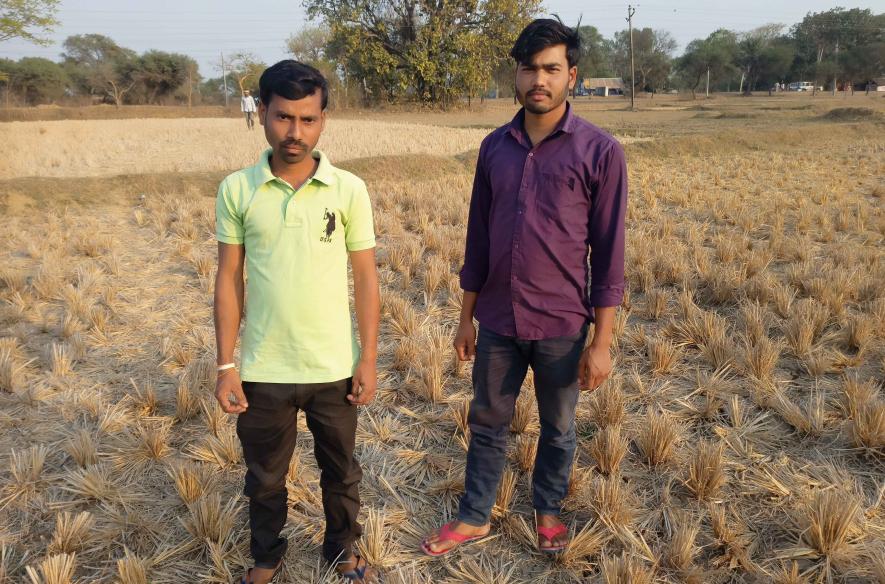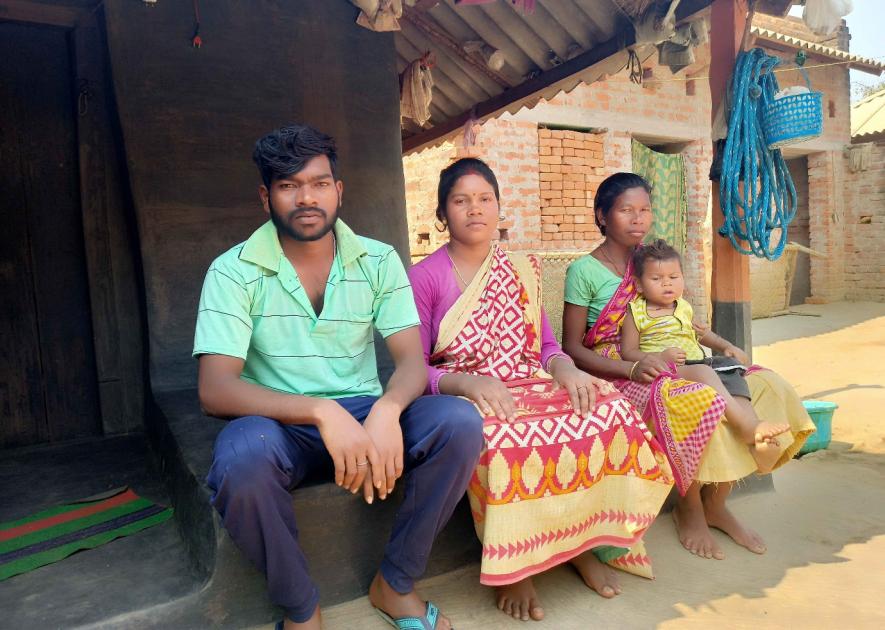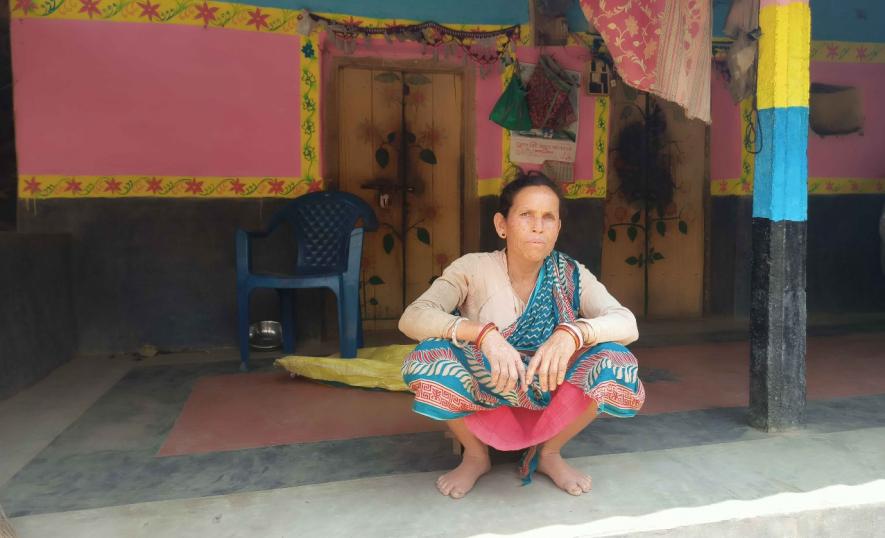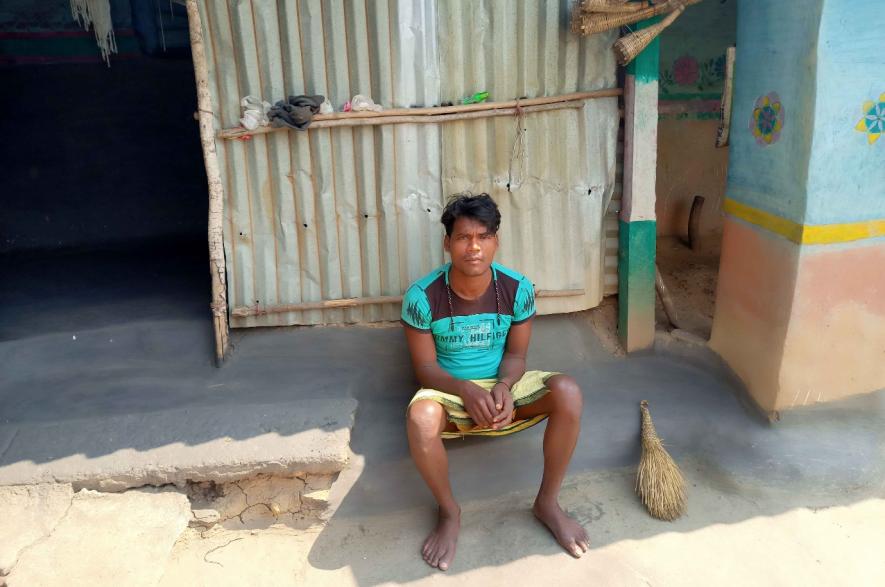2 Years After Pandemic, Bengal’s Jangal Mahal Youths Forced to Migrate for Work

Migrant labourer Jaganath Mahato and Amal Das at sindurpur, Ranibandh
The pandemic lockdowns forced countless migrant workers to return to their native places with hundreds dying on the streets and others reaching home half-dead.
A major chunk of the migrant workers who returned was from West Bengal. Chief minister Mamata Banerjee promised government assistance of Rs 1 lakh each to the workers to help them set up businesses and not migrate for work again. However, the promise was never fulfilled.
Neither the state employed the workers under Mahatma Gandhi National Rural Employment Guarantee Act (MGNREGA). It has been two years since villagers were employed under the Act and wages are still pending with Panchayats and the state government being mute spectators.
Consequently, thousands of youths, especially from the several tribal communities of Bankura, Purulia, Jhargram and West Midnapore—part of Jangal Mahal area—have migrated to other states for livelihood and to support their families.

Migrant labourer Milan Saren with his wife Kalpana, mother Chintamani and three-year-old son Sherma in Kulyam village, Ranibandh block, Bankura.
The families of these workers miss them terribly. “Often, I wake up in the middle of the night to see my daughter-in-law crying with my three-year-old grandson staring at her. Neither has she seen her husband for a long time nor have I seen my elder son. We both are spending our days in pain,” says a teary Chintamani Saren.
The helpless widow, a resident of Kulyam village, under Ranibandh block of Bankura district, says her son migrated to “fill our stomachs” due to the lack of employment. “If he could find a job here, would he have migrated?” she asks.
Chintamani’s son Milan (32), on a week’s leave for the Santhal community’s Baha festival, says, “I get Rs 11,000 per month for crushing stones for a contractor in Madhya Pradesh’s Banda town. The contractor makes much more money from the quarry owner than he pays us.”
Milan and five other workers somehow stay in a dilapidated house with no washroom provided by the contractor. “We can’t afford rented accommodation. We work for 12 hours a day and are provided with two meals which are not fulfilling. At times, we buy food but can’t afford it daily.”
The contractor doesn’t provide financial or medical assistance, in case, of any major illness or accident. “We have to take loans for treatment. The stone powder causes breathlessness, neck pain, skin diseases and headache,” Milan adds.
The Rs 8,000 he sends to his family every month isn’t enough to make ends meet, says Chintamani. “My younger son Molindra migrated to Gujarat for work last month. I don’t even know where he is in Gujarat right now. Both my sons had to move out due to the lack of work here,” she adds.
Sherma misses his father. “When my husband leaves after Baha festival, my son will be restless again,” says Kalpana.

Thakurmoni Hembram, mother of migrant labourer Debasis Hembram, in Kulyam village.
Chintamani’s fellow villager Thakurmoni Hembram spends her days in the same pain. With a jobless husband and elder son Mohini Mohonto Hembram (26) pursuing BA, her younger son Debasis Hembram (23) works at a construction site in Madhya Pradesh’s Saigarh.
“Out of his meagre salary of Rs 8,000, he sends us Rs 6,000 six every month,” says Thakurmoni, who put an asbestos sheet over the house by saving a little from his monthly assistance.

Migrant worker Ajit Shabar, a resident of Kulyam, is employed with a rod binding factory in Chennai.
Youths from 177 out of 300 families in Kulyam—like Achina Murmu, Ajit Shabar, Ayodhya Mandi, Animesh Saren and Aswaini Hansda—are migrant workers and spend most of the year outside. Many had to cut short their education as schools and tribal hostels in Jangal Mahal have been closed for the last seven years and some could never study.
Shabar, who never got to study, is employed with a rod binding factory in Chennai. He sends a portion of his paltry salary of Rs 3,000 to his family and funds the education of his daughter Rupali and son Raju, who are in standard nine and seven, respectively.
According to state government estimates, 50,000 residents of Bankuar, 78,000 of Purulia, 65,000 of Jhargram and more than 1 lakh from West Midnapore were employed in other states before the pandemic.
Even now, thousands of youths from Ranibandh, Sarenga, Raipur, Hirbandh, Simlapal , Bandoyan, Manbazar, Borabazar, Bagmundi, Arsha, Balarampur, Jhalda, Belpahari, Lalgarh, Binpur, Garbeta and Shalboni blocks in the forested area are migrating to other states for work.
The picking of Kendu leaves, used in bidi, was the biggest source of livelihood in Jangal Mahal during the Left Front regime with the Large-sized Agricultural Multipurpose Cooperative Societies (LAMPS) managing the business.
Under the Trinamool Congress rule, most LAMPS offices in these four districts have been closed with private contractors taking over the trade.
“The chief minister claims that the wages of Kendu leaf collectors have been increased. How is it possible when LAMPS have been shut down?” asks Madhu Sudan Mahato, a CITU leader from Ranibandh.
Nabakishor Mahato, from Chowkan village of Manbazar 2 block, Purulia district, lost four fingers while printing cloth in Mumbai. Many other migrant workers employed at cloth printing units in Mumbai lost their fingers as well but they don’t have an option.
Tarapada Mahato and his wife Sulochona had migrated to Mumbai for work, but she recently returned due to ill health. Now, the family depends on the monthly Rs 7,000 sent by Tarapada.
The writer covers the Bankura region for the ‘Ganashakti’ newspaper in West Bengal.
Get the latest reports & analysis with people's perspective on Protests, movements & deep analytical videos, discussions of the current affairs in your Telegram app. Subscribe to NewsClick's Telegram channel & get Real-Time updates on stories, as they get published on our website.























